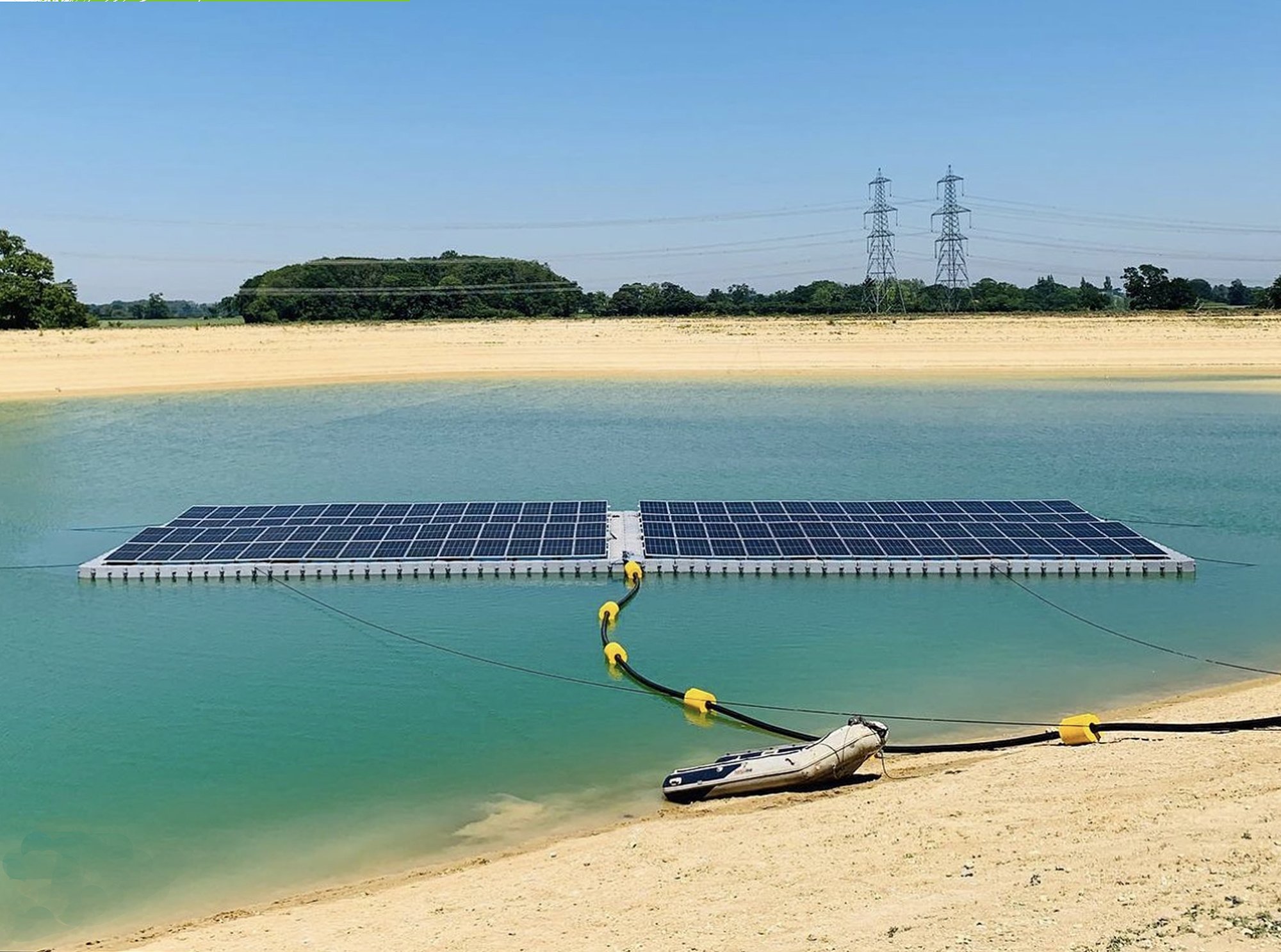Floating Solar: An Innovative Approach to Renewable Energy
Floating solar, also known as floating photovoltaic (FPV) systems, is an exciting and innovative solution in the renewable energy industry. These systems consist of solar panels mounted on floating platforms, typically installed on reservoirs, lakes, or other bodies of water. While floating solar offers unique benefits, it also comes with some challenges. Let’s dive into the pros and cons to determine its viability, particularly in the UK.
Pros of Floating Solar
Efficient Use of Space
Floating solar panels make excellent use of underutilised water bodies, such as reservoirs or ponds. By installing panels on water, valuable land can be preserved for other purposes like agriculture or development, which is particularly important in densely populated or rural areas.
Reduces Water Evaporation
Floating solar installations shade the water surface, significantly reducing evaporation. This is especially useful for reservoirs, where water conservation is critical during warmer months or in areas prone to drought.
Limits Erosion
Acting as a physical barrier, floating solar panels help protect the edges of reservoirs or lakes from erosion caused by wind and waves. This can extend the lifespan of these water bodies as vital resources for drinking water, agriculture, or recreation.
Cons of Floating Solar
Difficult Maintenance
Maintenance and repairs for floating solar systems are more complex compared to land-based systems. Accessing the floating panels often requires boats or specialised equipment, which can drive up costs and time required for upkeep.
Attraction to Birds
Floating solar installations can become highly attractive to birds, providing nesting areas or perches. While this may seem harmless, it can lead to operational issues, including increased cleaning requirements and damage caused by bird droppings or nesting materials.
Higher Costs
Floating solar systems are typically more expensive than traditional land-based solar installations due to the additional materials, specialised designs, and installation techniques required to ensure stability and durability on water.
Health and Safety Risks
Working on water introduces additional health and safety risks for installation and maintenance teams. Ensuring safe access and operation requires more stringent protocols and often specialized training or equipment, adding to the overall complexity.
East Green Energy’s Conclusion for the UK
At East Green Energy, we fully support the development and deployment of floating solar systems as they represent an innovative way to expand renewable energy capacity while addressing land-use concerns. Floating solar offers a smart and sustainable solution for utilising bodies of water that would otherwise remain unused for energy production.
While the upfront costs and maintenance challenges are notable, the long-term benefits—such as conserving land, reducing water evaporation, and limiting erosion—make floating solar a forward-thinking choice for the UK. As technology continues to improve and costs decline, floating solar has the potential to play an even greater role in the transition to renewable energy.
Harness the Power of Floating Solar
If you’re interested in exploring floating solar solutions for your property or business, East Green Energy can provide expert advice and tailored designs to suit your needs. Call us on 01394 380557 today to learn more about this innovative approach to renewable energy!
Floating Solar Panels offer a efficient use of space

